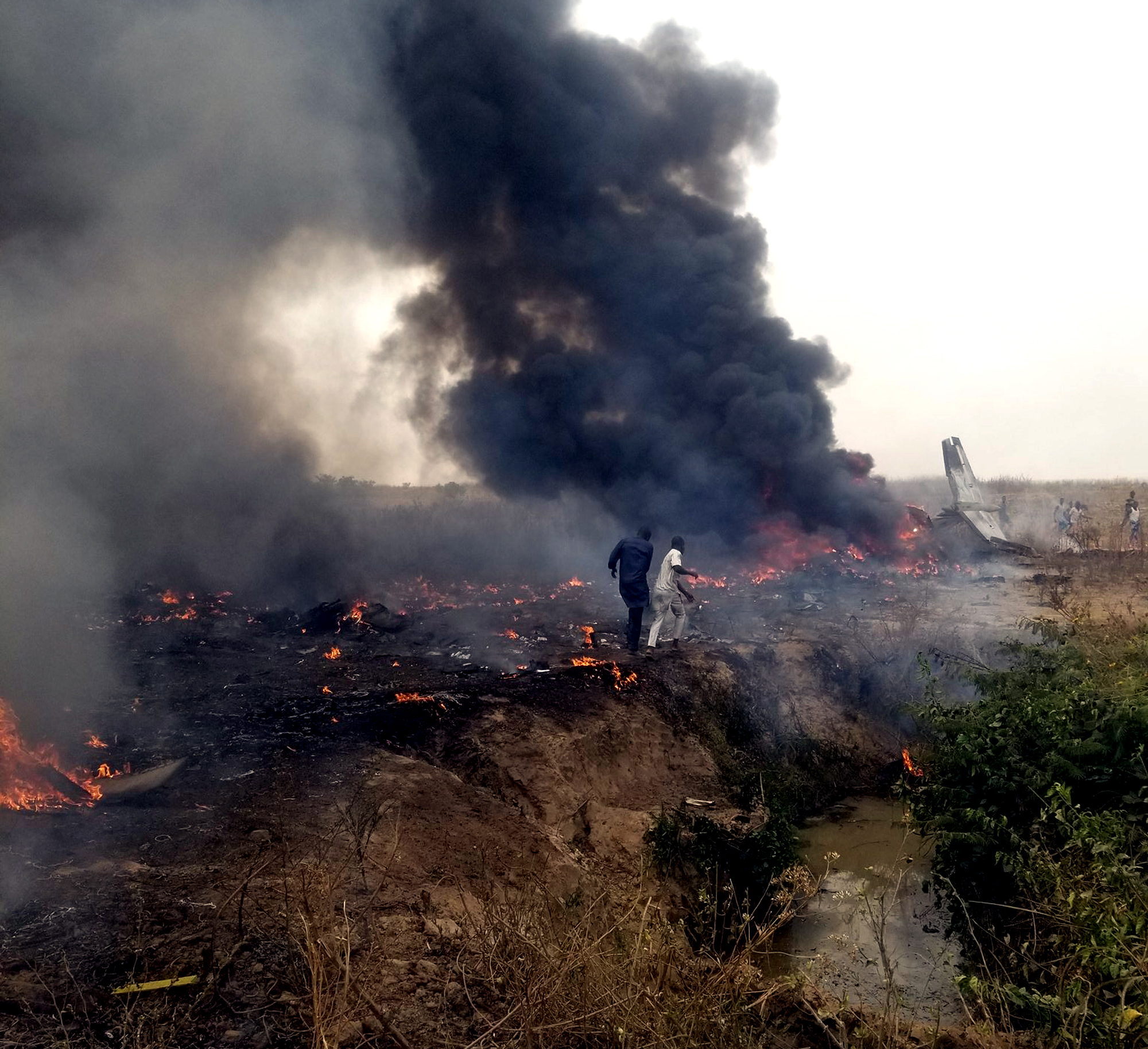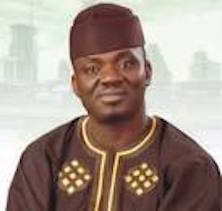NEWS
Suspension of University Governing Council Members in C’River Illegal – Obla
From Ene Asuquo, Calabar
Former Senior Special Adviser on prosecution in the immediate past administration of President Buhari, Okoi Obon Obla has criticized the suspension of four members of the Governing Council of the University of Cross River State by the Cross River House of Assembly for alleged diversion of university assets, describing it as illegal.
Obla in a statement sighted by our correspondent in Calabar reacted to the suspension of the four members of the University governing council by the State House of Assembly stating that by law, the Assembly has no right to fire who they did not hire.
The statement reads; “I unreservedly condemn such acts and support a thorough investigation leading to the appropriate punishment of any culprits.
However, I seriously question the encroachment upon the authority of law enforcement, which is legally vested in the Nigeria Police Force, the Economic and Financial Crimes Commission, and the Independent Corrupt Practices and Other Related Offences Commission”.According to him, “The Cross River State House of Assembly possesses no jurisdiction to investigate the commission of a crime under any pretext, maintaining that its primary function is to enact laws for the peace, stability, and good governance of Cross River State”.
He said, “In fulfilling its lawmaking role, the House has ancillary responsibilities, as outlined in Section 128, to exercise oversight of the executive branch, including its agencies, ministries, departments and commissions, such as the University of Cross River State”. Stressing that the oversight aims to expose corruption, inefficiency, and maladministration, thereby improving the laws establishing these entities.
“The University of Cross River State was established by Cross River State (Establishment) Law No. 2 of 2020. This law vests in the Governor of Cross River State the power to appoint the Chairman/Pro-Chancellor and members of the Governing Council”.
“A fundamental legal principle dictates that the power to suspend derives from the power to appoint. Because the House of Assembly lacks the authority to appoint members to the Governing Council of the University of Cross River State, it is precluded from suspending those members”.
He maintained that the power to suspend, in this instance, rests solely with the Governor, as the appointing authority.
Citing Section 11, subsection 2, paragraphs (a), (b), (c)(i), and (c)(ii) of the Interpretation Act provides as follows:
Where an enactment confers a power to appoint a person either to an office or to exercise any functions, whether for a specified period or not, the power includes: Power to appoint a person by name or to appoint the holder from time to time of a particular office, Power to remove or suspend him, Power, exercisable in the manner and subject to the limitations and conditions (if any) applicable to the power to appoint.
Obla maintained that the purported suspension of five members of the University of Cross River State on 25 March 2025 for the alleged crime of diversion or theft of university assets by the Cross River State House of Assembly is illegal, wrongful, and unconstitutional.
“Legally, a foundation of nothing cannot support anything. It will inevitably collapse because nothing can come from nothing”.
He advised the Cross River State House of Assembly to remain abreast of the provisions of the Constitution of the Federal Republic of Nigeria, 1999, and to adhere strictly to the boundaries and limitations of its assigned powers.
Stating that this will safeguard the Assembly from public condemnation and ridicule and prevent any constitutional conflict with the Executive branch of government, Obla stated.
NEWS
Nigeria Condoles India over Tragic Plane Crash

The Federal Government on Thursday condoled the Indian government over the tragic crash of Air India Flight-171 in Ahmedabad.The Minister of Foreign Affairs, Amb. Yusuf Tuggar, disclosed this in a statement issued by Kimiebi Ebienfa, Spokesperson of theMinistry.Tuggar said, “Nigeria expresses profound sorrow and extends its heartfelt condolences to the government and people of India over the tragic crash of Air India Flight 171 in Ahmedabad on June 12, 2025.
“This devastating incident which claimed the lives of over 290 individuals has left the global community in mourning. “Nigeria stands in solidarity with India during this period of immense grief and unfortunate loss.“While initial reports indicate no Nigerian citizen was aboard the flight, the Nigeria High Commission in New Delhi remains in close contact with Indian authorities to verify this information and provide consular assistance where necessary.“In this moment of shared sorrow, Nigeria reaffirms its commitment to global aviation safety and supports the call for thorough investigation into the crash with a view to preventing such tragedies in the future.”The minister further commiserated with the families of the bereaved and all those affected by this tragic incident. (NAN)NEWS
Benue Speaker Advises Youth to Participate Actively in Politics

The Speaker, Benue House of Assembly, Mr Hyacinth Dajoh, has advised youths in the state to participate actively in the economic and political development of the country.Dajoh gave the advice in his Democracy Day message issued by his Press Secretary, Mr Terver Zamber, in Makurdi.
The speaker urged youths to show more interest in the economic and political development of the country. He said that they had the required education, exposure, and numerical strength to make a positive impact on both the economy and governance. Dajoh assured the youths that the assembly under his leadership would continue to enact laws to protect democracy and the rule of law.The speaker urged Nigerians to be more determined in ensuring that democracy worked in the country.He said that democracy remained the best option for the country.The speaker added that through the determination of the citizens and their active participation in the democratic process, Nigeria would be a great country.He saluted the heroic deeds of patriots who worked assiduously to actualise democratic rule in the country, especially the symbol of the June 12 struggle, the late M.K.O. Abiola.According to him, only a truly great, peaceful and prosperous Nigeria could be a befitting compensation for their sacrifices.He commended President Bola Tinubu and Gov. Hyacinth Alia of Benue for their roles in upholding democratic principles.Dajoh said that more sacrifices were required from the citizens to ensure that the country got the best of democracy. (NAN)NEWS
Cross River Communities Resume Hostility with More Casualties

From Ene Asuquo, Calabar
There is another round of hostility arising from communal skirmishes between two brotherly communities of Etono 2 and Biakpan in Biased Local Government Are of Cross River State.The resumption of hostilities happened some days ago when youths from Etono 2 were alleged to have attacked and killed a visitor to Biakpan and another youth whose identity was not immediately known.
Before then there were reports that nearly 50 persons had been killed on both sides. In the latest resurgence, a source said, “Sporadic shootings were heard on Monday and Tuesday inside Biakpan. A few persons have been killed.”State security adviser Southern district, Patrick Odion told our correspondent that he has his men on ground to calm the situation.Recall that about three weeks ago, Commissioner of Police in the state, Olusegun Omosanyin summoned the two sides to his Headquarters in Calabar and cautioned them.The police commissioner had disclosed how there was massive arms buildup by the two communities and said he would launch police action to retrieve the arms from them.He had expressed anger that the two sides had earlier refused to appear before him three times when he summoned them, adding that he had also dispatched his key officers to the two communities.Following the resumption of the hostilities, the police commissioner again met with the leadership of Biase LGA in his office.He assured that he would mobilize his men today to Biakpan and Etono 2 to quell the uprising.When DAILY ASSET spoke with some concerned stakeholders from the two communities they lamented that often when police and soldiers sent to douse tensions would leave, hostilities would resume soon after.A youth leader from Etono 2 who gave his name as Egwu Jerry, lamented, “The presence of the security men usually give us confidence but once they leave, our safety is no longer guaranteed. We’re few compared with those from Biakpan.”He also lamented that they do not have access road elsewhere than the one into Biakpan which reason, their adversaries usually encircle and easily attack and kill them.But a chief from Biakpan who gave his name as Onun Ekpezu alleged that Etono people were too aggressive and violent, and have destroyed their important properties and farms, and have killed their people and visitors.”Because of these, our youths have positioned themselves to defend our women and properties”, Ekpezu said.














